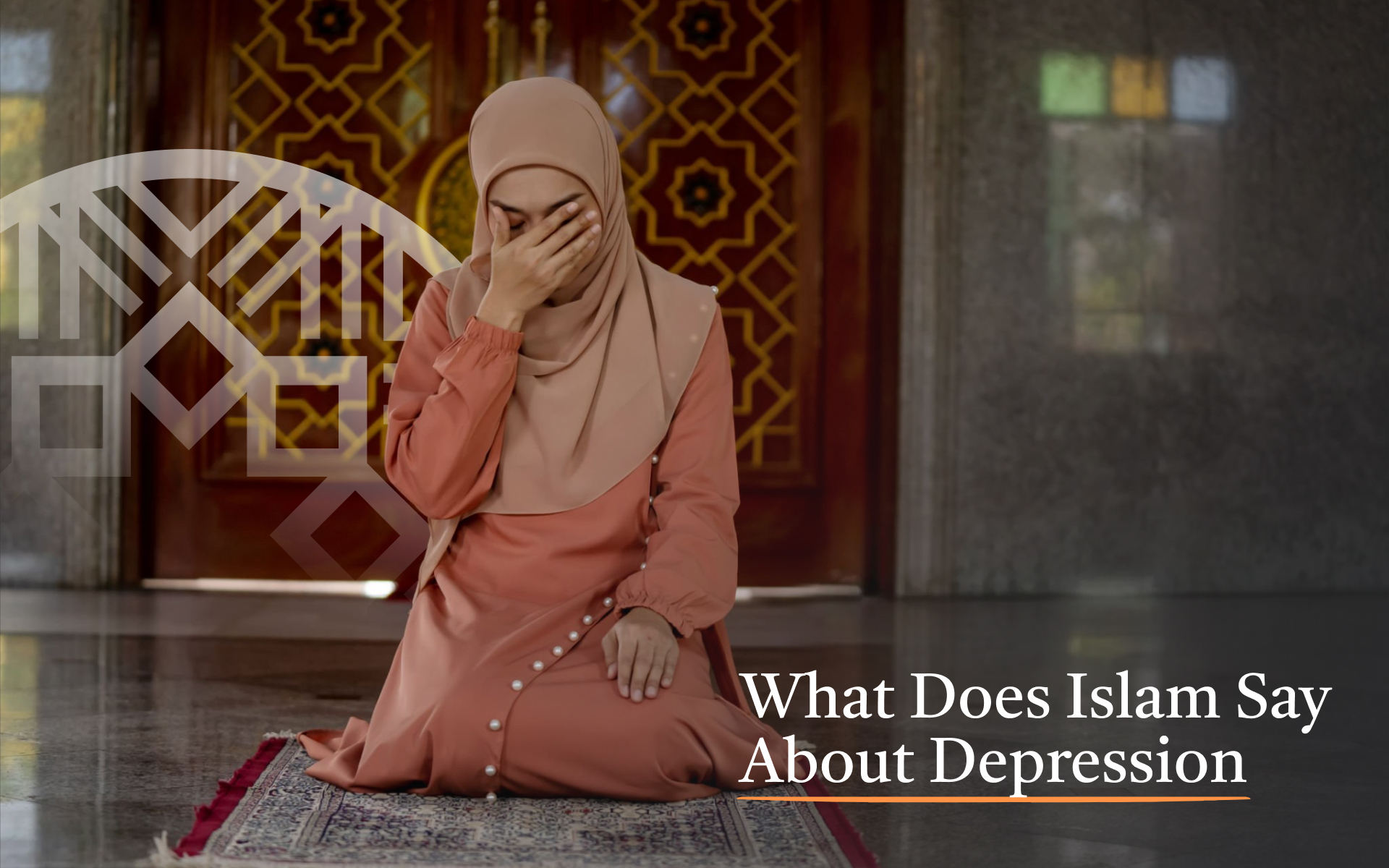For many Muslims, talking about mental health can feel difficult, almost like it is something that should be kept quiet. There is a common belief that if your faith is strong, you should not feel low, anxious or depressed. Some think that being a good Muslim means always being happy, but that is simply not the case.
Let’s be honest. Depression does not mean your iman is weak. It is not a punishment, and it is definitely nothing to be ashamed of.
In today’s world, where life moves quickly and pressures often build up unnoticed, it is natural to feel emotionally drained. Depression is not a personal failure. It is a real and valid experience. And Islam acknowledges that.
So, what does our faith really say about mental wellbeing? And how can we begin the journey towards healing?
Islam Acknowledges Mental and Emotional Struggles
Depression is real, and Islam does not deny it. It is a human experience that can affect how you think, feel, eat, sleep, and connect with others. And yes, it affects Muslims too.
Our tradition is full of reminders that emotional pain does not mean weakness. Prophet Yaqub (AS) cried so much out of grief for his son Yusuf (AS) that he lost his eyesight. As mentioned in the Quran:
“And his eyes became white from grief, for he was [of that] a suppressor.” – Surah Yusuf (12:84)
Even the Prophet Muhammad (peace be upon him) went through the Year of Sorrow after losing his beloved wife Khadijah (RA) and his uncle Abu Talib. These are not just stories. They show us that grief, sadness, and hardship are part of life, even for the most beloved of Allah’s creation.
Faith and Mental Health Go Hand in Hand
Islam teaches us to care for the nafs, the self, which includes both the heart and the mind. While we are encouraged to have tawakkul (trust in Allah), practice sabr (patience), and believe in shifa (healing), this does not mean we ignore our pain or try to simply pray it away.
Seeking help is not a lack of faith. In fact, it aligns with Islamic values. Just as we would treat a physical illness, it is wise and encouraged to seek help for emotional and psychological challenges. Islam beautifully balances both Deen (faith) and Dunya (worldly action) by reminding us that healing is a journey of both prayer and practical support.
Healing Through Support That Understands You
At Mindful Ummah, we understand that sometimes you just need someone who connects with both your struggles and your faith. That is why our counselling brings together professional guidance and Islamic values, so you feel supported in every way.
Whether you are feeling anxious, low, or simply unsure of what to do next, you are not alone. Our helpline and counselling sessions offer a safe, confidential space where you can speak openly and feel truly heard.
Reaching out can feel daunting, but your wellbeing matters. We have made our support welcoming and easy to access for Muslims across the UK. Booking an appointment could be the first step towards clarity, healing, and peace of mind.
Your journey to healing begins with one step. Let’s walk through it together, at your pace.
Small Steps Toward Self-Help
Not everyone feels ready to open up. And that is perfectly okay. Healing does not always begin with a conversation. Sometimes, it starts quietly, in your own time and space.
Here are a few gentle self-help practices, inspired by faith and grounded in everyday life:
- Daily Dhikr – Simple phrases like “Hasbunallahu wa ni’mal wakeel” can bring a sense of calm and remind your heart that you are not alone.
- Breathing with Intention – A few deep breaths paired with the name of Allah can ground you during anxious moments.
- Writing Duas as Journals – Putting your thoughts and prayers on paper can offer a powerful sense of relief and clarity.
- Salah with Reflection – Slowing down during prayer, connecting deeply in sujood, and letting tears flow if they need to.
- Small Daily Wins: Whether it is making your bed, stepping out for fresh air or praying on time, these simple actions help build routine and resilience.
- Limit Social Media: A short break from scrolling can ease the mind. You are not falling behind, you are giving yourself space to heal.
- Reach Out When You Are Ready: A quick chat over tea with someone you trust can make a big difference. There is no rush, just know support is there when you need it.
Mindful Ummah offers resources and tools you can explore at your own pace. And when you feel ready to talk, we will be here.
You Deserve to Be Heard
You are not alone in your journey. Many others share the same pain, but the first step is reaching out, speaking up, and asking for help. It makes the burden a little easier to carry.
Mindful Ummah’s helpline is here to remind you that your faith is not diminished by your feelings. Healing is possible when you allow your heart and Deen to guide you, with support, hope, and faith to light the way.
Take the first step toward healing. Book your confidential counselling session with us today.
